Stories
March success story: Pioneering community energy in Serbia with an inclusive approach
Community energy is key to action on the climate crisis. It can empower people, boost local economies, and reinvigorate communities. Community-led initiatives play an important role in the transition towards a 100% renewable and just energy future. Success stories of community energy projects can be found all over Europe. At REScoop.eu we want to highlight these stories to further accelerate the movement towards a cleaner and democratic system.
This month, we travel to Serbia on 8 March to celebrate Women’s Day with the energy cooperative Elektropionir and learn about their female leadership and groundbreaking work in pioneering community energy in the country.
An energy cooperative making a difference
Founded at the end of 2019, Elektropionir is a Serbian energy cooperative with a mission to empower ordinary people to participate in the energy transition. It represents the second initiative of its kind in Serbia, with the first being established just weeks earlier. Before their creation, there were no examples of community energy in the country.
Despite having only 17 members, Elektropioinir has achieved significant milestones for the community energy movement, demonstrating the feasibility of producing renewable energy in the region while adhering to cooperative principles. These achievements are expected to pave the way for more community energy initiatives in Serbia.
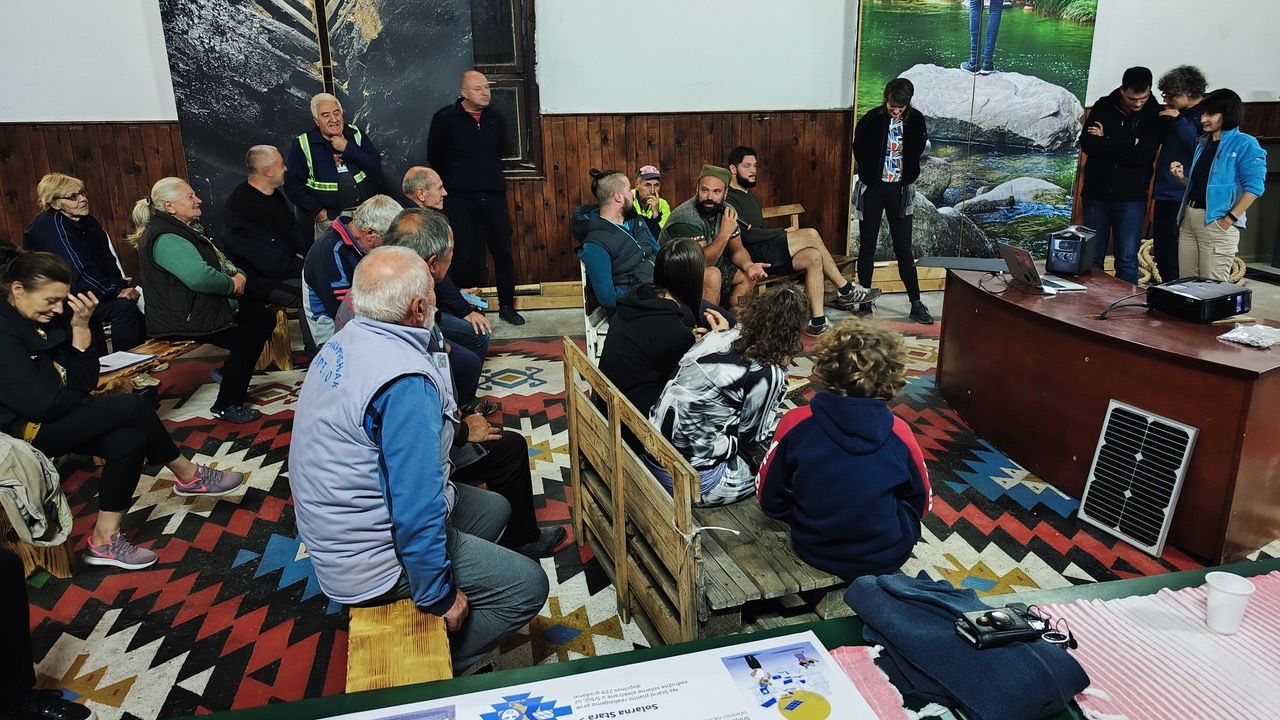
The first cooperative power plants in Serbia
Elektropionir’s inaugural generation project, Solarna Stara, comprises the country’s first two cooperative power plants, each with a production capacity of 5kW. These installations are located on the roofs of local community buildings in the villages of Temska and Dojkinci, on Stara Planina mountain in southeastern Serbia. The project underscores Elektropionir's commitment to an energy transition that empowers local communities and demonstrates that Serbian citizens can take energy production into their own hands.
The selection of this initial site holds symbolic significance, as Stara Planina gained recognition for resisting small hydropower projects. Marc Neelen, co-founder of Elektropionir, explains that “while these projects were looking promising on paper, in reality they were pretty toxic for the communities and they would have been devastating”. This negative experience created a bad perception of renewables in the area, and Solarna Stara emerged as a means of changing that vision. Initially received with reservation, Elektropionir’s proposal gained community support as people understood its differences from the hydropower plans. “There was a very positive energy, I think people were really motivated to see something good happening”, Marc concludes.
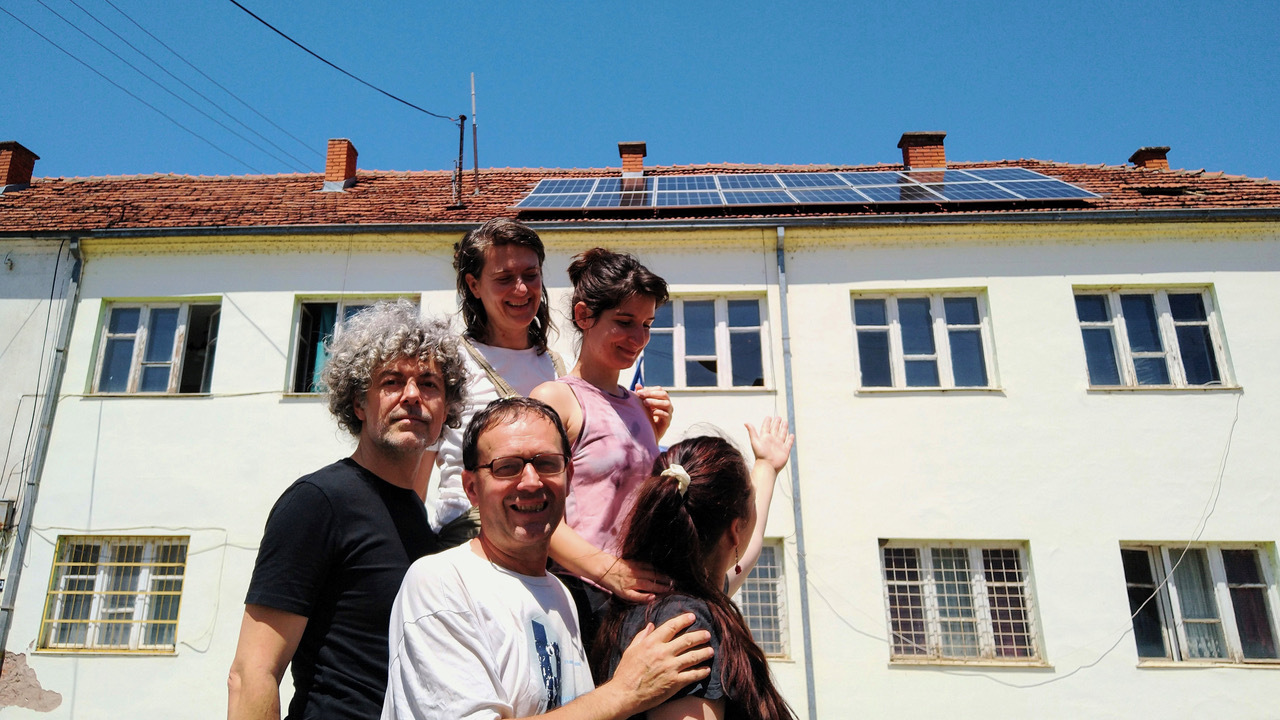
The two installations are now completed and in the process of being connected to the grid, likely happening this month. The project was partly funded through a crowdfunding campaign, and the revenues from selling the electricity to the grid will be channelled into local community projects eligible for funding.
Two new projects, two new milestones
Elektropionir’s second project is an agrovoltaic power plant – the first one in the country – located in an organic farm in Gornja Bukovica, central Serbia.
This installation, comprising 48 solar panels with a total capacity of 17.5 kWp, was built last month. While the procedure for grid connection has started, it may take up to a year in Serbia. Once operational, the revenues from selling the electricity will contribute to the cooperative’s operational cash flow.
The third project, still in the early stages, involves conversations with a school and a municipality in the town of Ruma in northern Serbia to install solar panels on the school’s roof. The project will have two installations - one for the school’s self-consumption funded through a donation, and a production one funded by the cooperative and crowd investment from parents of the pupils and the local community. Revenues generated by the second installation will go to Elektropionir and the citizens who participated in the crowd investment. This initiative marks Serbia’s first solar power plant financed with a crowd investment.
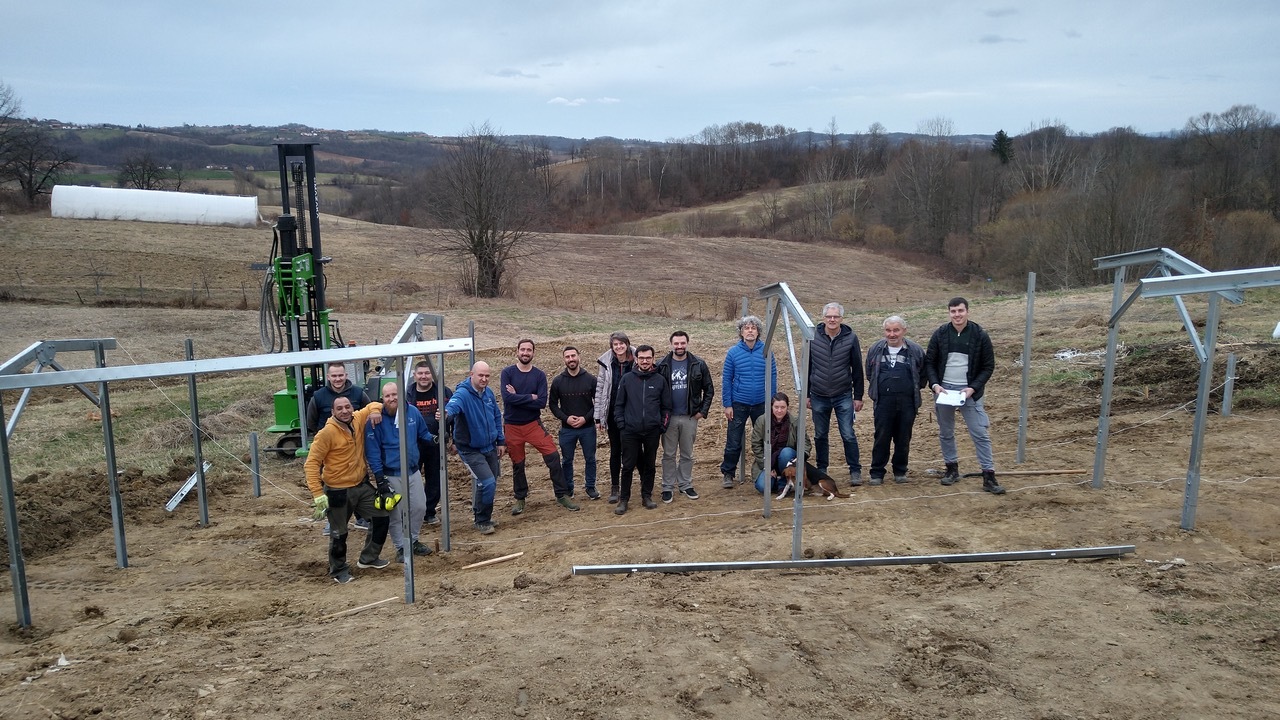
Navigating the challenges of pioneering initiatives
Being pioneers comes with challenges. “We always have to find new pathways and figure out how we can implement our projects”, Marc notes. He also underlines the extended time it takes to get the paperwork done in Serbia. Ana Džokić, also co-founder of Elektropionir, shares an example.
“We have been waiting for about a year for the connection permission of the two tiny solar plants in Stara Planina. They have to follow the same procedure as installations of a few megawatts! Same office, same steps… This really hinders the development of our plans.”
While other European countries have enabling frameworks for energy cooperatives, Serbia lacks references for energy cooperatives. Despite this, Elektropionir perseveres, believing that they “should not wait for all the conditions to be met and for the majority to start. We think that a persistent group of pioneers can bring about change.”
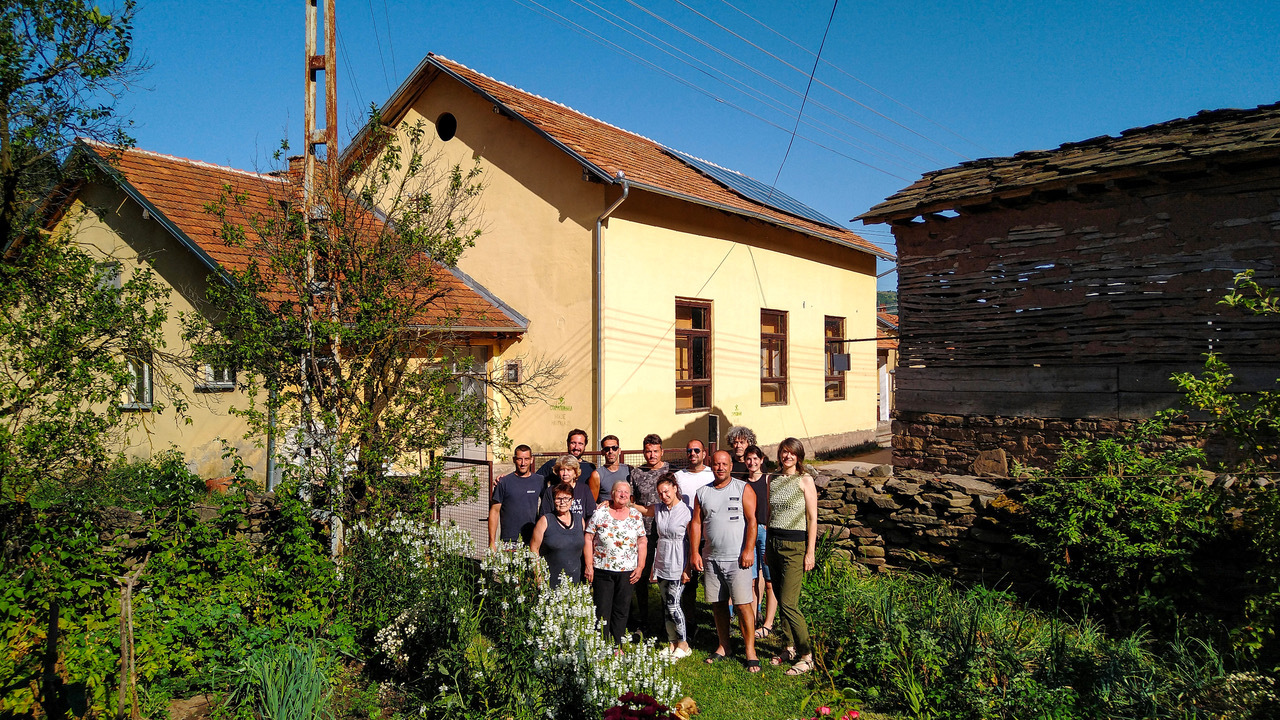
An inclusive approach and female leadership
Elektropionir’s achievements are rooted in an inclusive approach, with a clear intention to involve citizens, regardless of gender, age and origin. Although they don’t have a formal gender plan, they have started out with a female director and a female chair of the general assembly.
Ana, who represents Elektropionir in many events, emphasises that female leadership brings a “different energy and different way of working in a predominantly male-dominated energy sector.” Moving on, Ana observes that “the presence of women is refreshing and can be welcoming to more different people who don’t feel comfortable with often verbally imposing or overly dominant men.”
Commitment to gender balance
Elektropionir’s inclusive practices have been featured in an inclusivity guide for energy communities published by the SCCALE203050 project. The document highlights how the cooperative supports diversity and inclusion of a range of individuals through female leadership and the use of inclusive visuals in their communications. These efforts extend to their educational initiative, incorporating gender equality into the solar energy course they organise in Serbia.
At the international level, Elektropionir contributes to an Erasmus+ project empowering female entrepreneurs with green skills, and participates in REScoop.eu’s Gender Power working group. This group provides a space for REScoop.eu members to identify needs, exchange best practices, and discuss tools to help energy communities diversify their boards and membership base.

Elektropionir’s commitment to inclusivity was acknowledged when they received an award from Belgrade feminist cultural centre BeFem on 8 March last year for widening participation in the Solarna Stara project to women and people from different generations and backgrounds. Ana was also recognised as Female Leader in Sustainable Energy by WISE Serbia women’s network in September.
“These acknowledgements show that we are not only producing energy; we are also working on gender balance”, Ana summarises. The awards build internal expectations as to whether they should develop a more outspoken agenda about gender equality.
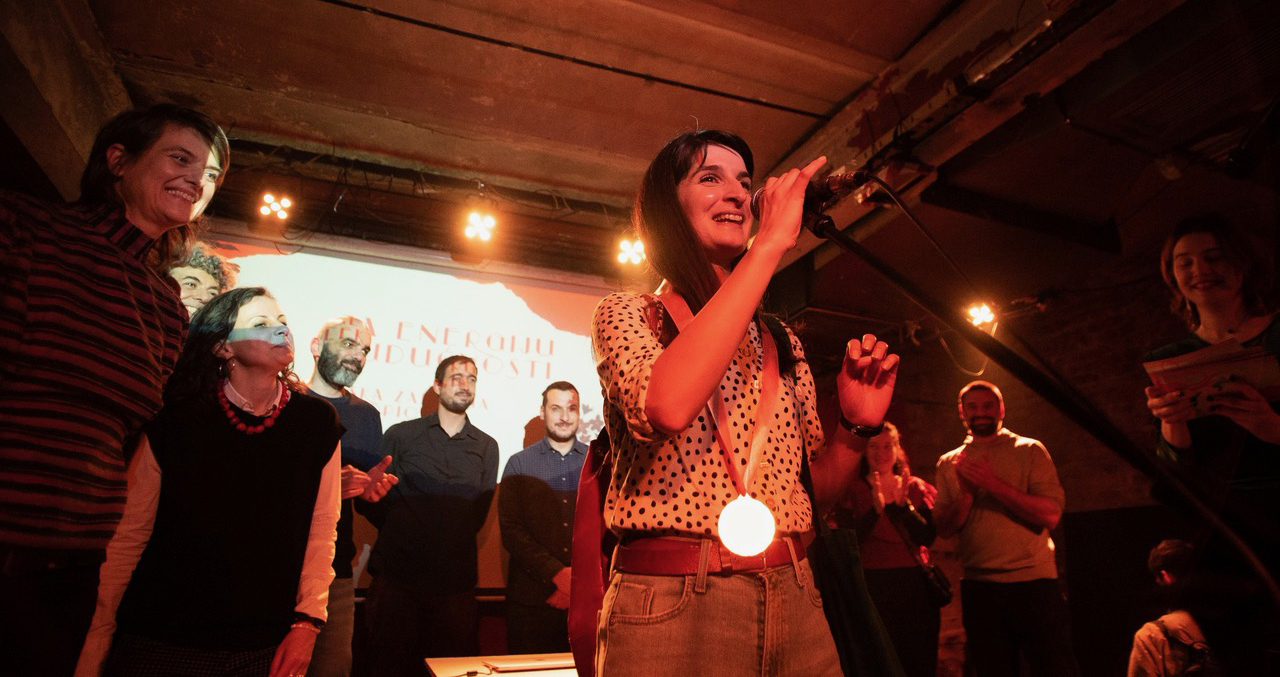
Elektropionir has ambitious plans for the future, aiming to increase their generation capacity and involve more citizens in the cooperative; thereby assuming a more prominent role in Serbia's energy landscape. This would help them spread their vision of a just (and gender-just!) energy transition in the country.